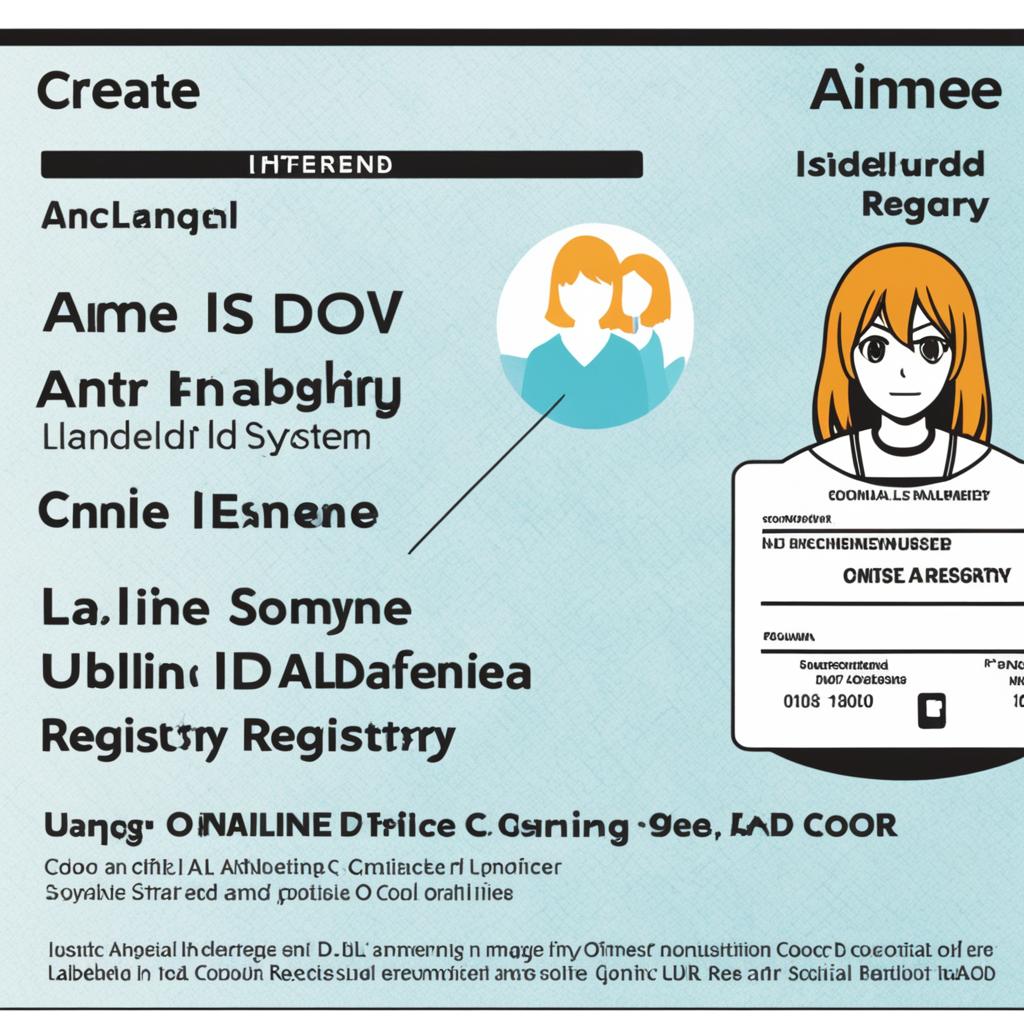When it comes to travel, the regulations and limitations for registered sex offenders can be complex and vary widely across the United States. As a registered sex offender, understanding the travel restrictions is crucial to ensure compliance with the law and avoid potential legal consequences.
In this article, we will explore the travel regulations for registered sex offenders in the U.S., including the requirements for travel within the state, traveling to different states, and even international travel. Are registered sex offenders allowed to travel freely? How are they monitored and restricted when it comes to travel? Let’s dive into the details and get a comprehensive understanding of the travel experience for sex offenders in the United States.
Sex Offender Registry and Duration of Registration
Every state and U.S. territory has a sex offender registry that monitors and tracks sex offenders after their release. The sex offender registry is a crucial tool for law enforcement and community members to stay informed and promote public safety. It plays a vital role in helping to prevent future offenses and protect potential victims.
The duration of registration on the sex offender registry varies widely depending on the jurisdiction and the level of the offense committed. In general, the duration of registration for sex offenders can range from a few years to a lifetime. Higher-level offenses and repeat offenses typically carry longer registration periods.
However, it’s important to note that most jurisdictions offer a path for eventual removal from the registry for some registrants. This means that not all individuals will be required to remain on the registry for the rest of their lives. The specific requirements and criteria for removal from the registry vary among jurisdictions, taking into account factors such as the nature of the offense, risk assessment, and rehabilitation efforts.
Sex offenders should consult the laws and regulations of their specific jurisdiction to understand the duration of registration they are subject to. By knowing the specific requirements, they can ensure compliance with the law and take appropriate steps to fulfill their obligations as a registered sex offender.
Duration of Registration for Sex Offenders by State
| State | Duration of Registration |
|---|---|
| Alabama | 10 years or life |
| Alaska | 15 years or life |
| Arizona | 10 years or life |
It’s important for sex offenders to understand that the duration of registration can impact various aspects of their lives. Compliance with registration requirements is essential to avoid potential criminal charges and penalties. It’s also crucial for sex offenders to remain aware of any updates or changes to the registration requirements in their jurisdiction, as these may affect their obligations and responsibilities.
Navigating life as a registered sex offender can be challenging, but by understanding the duration of registration and fulfilling their legal obligations, individuals can work towards rehabilitation, reintegration, and promoting community safety.
Community Notification and Residence Distance Restrictions

When it comes to the public disclosure of information about sex offenders, most jurisdictions in the United States have a public sex offender registry website. These websites allow concerned citizens to easily search for sex offenders residing in their neighborhood. The purpose is to promote awareness and ensure community safety.
In addition to the online registry, some jurisdictions go a step further and require active community notification. This means that law enforcement or the sex offender themselves directly inform the immediate community about their presence. The goal is to ensure that residents are informed and able to take necessary precautions to protect themselves and their families.
Furthermore, many jurisdictions have residence distance restrictions in place for sex offenders. These restrictions prohibit them from living within a certain distance of specific locations, such as schools, parks, or other areas where children may frequent. These restrictions can be enacted at the statewide level or vary depending on the local jurisdiction.
Here’s an example of residence distance restrictions for sex offenders in different states:
| State | Residence Distance Restrictions |
|---|---|
| State A | No residency within 1,000 feet of schools, parks, or playgrounds |
| State B | No residency within 500 feet of schools or child care facilities |
| State C | No residency within 2,000 feet of schools or any place where minors congregate |
These distance restrictions aim to create a buffer zone between sex offenders and locations frequented by children, reducing the potential risk of reoffending and promoting safer communities.
By implementing community notification and residence distance restrictions, authorities strive to strike a balance between public safety and an offender’s reintegration into society. These measures play a crucial role in creating awareness, preventing potential incidents, and ensuring the well-being of communities.
Employment Distance Restrictions and Employer Information on the Public Registry

When it comes to employment, registered sex offenders often face limitations and restrictions designed to prioritize the safety of vulnerable populations. These restrictions aim to prevent sex offenders from working in positions that may put them in proximity to minors or increase the risk of reoffending.
One common restriction is employment distance limitations, which prohibit sex offenders from working within a certain distance of specific places, such as schools, parks, or childcare centers. The exact distance varies depending on the jurisdiction, with some states enforcing stricter regulations than others. This ensures that sex offenders are not employed in environments where they may have direct contact with potential victims.
Moreover, in some jurisdictions, employers may be required to provide their information to be included on the public registry. This information could include the employer’s name and address, allowing the public to access and be aware of where registered sex offenders are employed. This helps support transparency and informed decision-making for individuals and organizations who want to ensure the safety of their community or workplace.
It is crucial for registered sex offenders to understand and comply with employment distance restrictions and any requirements related to employer information on the public registry. By adhering to these regulations, sex offenders can contribute to creating safer environments and demonstrate their commitment to rehabilitation, reintegration, and public safety.
Image: A visual representation of employment distance restrictions, highlighting the importance of maintaining distance from places like schools and parks.
Online Identifiers on the Public Registry and State-Issued ID Labeling

In some jurisdictions, registered sex offenders are required to report their online identifiers, such as email addresses and social media usernames. This information serves as an additional means of identifying and monitoring sex offenders, providing authorities and the public with crucial information to ensure community safety. It is important for registered sex offenders to comply with these reporting requirements to avoid potential legal consequences.
Furthermore, some jurisdictions go a step further by requiring registered sex offenders to have their state-issued ID, such as a driver’s license, labeled to identify them as sex offenders. This labeling may involve a distinctive mark, symbol, or color that alerts law enforcement officers, establishments, and individuals to the individual’s status. These visual identifiers play a vital role in enhancing public awareness and aiding in sex offender identification.
| Online Identifiers Reporting | State-Issued ID Labeling |
|---|---|
| Required in some jurisdictions | Required in some jurisdictions |
| Includes email addresses and social media usernames | Involves distinctive markings or symbols |
| Collected and displayed on the public registry website | Aids in visual identification by law enforcement and the public |
These measures contribute to the overall goal of sex offender identification, deterrence, and public safety. By maintaining accurate and up-to-date information regarding online identifiers and utilizing state-issued ID labeling, authorities can effectively track and monitor registered sex offenders, further minimizing the risk to the community.
Cost of Registration and Travel Within the State
When it comes to being a registered sex offender, there are not only legal obligations to comply with but also financial considerations to keep in mind. Some jurisdictions impose fees for sex offender registration, which can be one-time fees or ongoing fees. These fees may vary depending on the jurisdiction and the specific requirements of the registration process.
Registrants may be required to pay a fee for initial registration or each time they update their information. These fees contribute to the administrative costs associated with managing the sex offender registry and ensuring the accuracy of the information provided.
It’s important to note that the cost of registration is just one aspect to consider when it comes to being a registered sex offender. Traveling within the state also poses its own set of challenges and limitations. The requirements for registration during travel can vary depending on the jurisdiction.
For instance, some states and territories require sex offenders to register for visits within the state that are shorter than a certain number of days. This can range from seven days to a specific duration set by local laws. Understanding the travel limitations and registration requirements within your jurisdiction is essential to avoid any potential legal issues.
Being aware of the cost of registration and the travel limitations within the state will help registered sex offenders navigate the legal landscape more effectively and ensure compliance with the law.
Traveling to Different States and International Travel
When it comes to traveling to different states within the United States, registered sex offenders need to be aware of the regulations and requirements that vary depending on the jurisdiction and the length of stay.
In some jurisdictions, immediate notification is mandatory, requiring sex offenders to inform the local registry as soon as they enter a new state. This ensures that authorities can monitor and track their movements to ensure compliance with registration requirements.
However, there are jurisdictions that allow limited stays without requiring registration. This means that sex offenders can visit certain states for a short period, such as a few days, without the need to notify the local registry. Nevertheless, it’s crucial to consult with your Parole or Probation Officer before undertaking any travel as a sex offender under supervision. They can provide guidance and obtain any necessary permissions to comply with your supervision requirements.
When it comes to international travel, sex offenders can leave the United States. However, it’s essential to understand that entry into other countries may be restricted based on both your registration status and criminal record.
As a registered sex offender, you are required to notify your local registry before leaving the country. Failure to do so is considered a federal crime and can result in serious consequences.
Image:
Returning to the United States and Additional Screening
As a registered sex offender, it’s crucial to be aware of the potential challenges that may arise when returning to the United States from abroad. While you will still be allowed to reenter the country, it’s important to note that you may face additional screening, which can result in delays and extra scrutiny during the check-in process.
It’s important to understand that this additional screening is a part of the authorities’ responsibility to ensure the safety of the community. While it may be an inconvenience, it doesn’t prevent you from returning to the United States.
If you feel that you were treated unfairly or believe that the screening process was handled incorrectly, you have the option to file a complaint. The Department of Homeland Security provides the Traveler Redress Inquiry Program, where you can submit your concerns and seek further clarification regarding your travel experience.
When traveling as a registered sex offender, it’s crucial to be prepared for the possibility of additional screening. Stay informed, understand your rights and responsibilities, and comply with the necessary regulations to ensure a smoother travel experience when returning to the United States.
FAQ
Q: Can a sex offender travel?
A: Yes, sex offenders can travel, but the regulations and restrictions on travel vary depending on the jurisdiction. It is important for registered sex offenders to understand the requirements and limitations on travel to ensure compliance with the law.
Q: What is the sex offender registry and how long do sex offenders have to register?
A: The sex offender registry is a system that monitors and tracks sex offenders after their release. The duration of registration varies widely depending on the jurisdiction and the level of the offense committed. It is important for sex offenders to understand the specific duration of registration in their jurisdiction to ensure compliance with the law.
Q: How do communities get notified about sex offenders in their neighborhood?
A: Most jurisdictions have a public sex offender registry website that allows concerned citizens to search for sex offenders in their neighborhood. Some jurisdictions also require active community notification, where law enforcement or the offender themselves directly notify the immediate community.
Q: Are there restrictions on where sex offenders can live and work?
A: Yes, some jurisdictions have residence distance restrictions that prohibit sex offenders from living within a certain distance of certain places, such as schools or parks. Registered sex offenders are often restricted from certain types of employment and working at establishments that cater to minors. Employment distance restrictions may also prohibit sex offenders from working within a certain distance of certain places.
Q: What information is included on the public sex offender registry?
A: Some jurisdictions require registered sex offenders to report their online identifiers, such as email addresses and social media usernames. This information may be included on the public registry website, separate from the offender’s profile. Additionally, some jurisdictions require a state-issued ID, like a driver’s license, to be labeled to identify the holder as a registered sex offender.
Q: Are there any fees associated with sex offender registration?
A: Some jurisdictions impose fees for sex offender registration, which can be one-time fees or ongoing fees. Registrants may be required to pay a fee for initial registration or each time they update their information.
Q: What are the travel restrictions for registered sex offenders within the state?
A: The requirements for registration when traveling within the state vary depending on the jurisdiction. Some states and territories require registration for visits of less than a certain number of days, such as 7 days. It is important for sex offenders to be aware of the regulations and limitations on travel within the state to ensure compliance with the law.
Q: What are the travel restrictions for registered sex offenders traveling to different states and internationally?
A: The regulations for registered sex offenders traveling to different states within the United States vary depending on the jurisdiction and the length of stay. Some jurisdictions require immediate notification, while others allow limited stays without requiring registration. Sex offenders under supervision generally need permission from their Parole or Probation Officer before traveling and should consult with their supervising officer. Regarding international travel, sex offenders can leave the United States, but entry into other countries may be restricted based on both registration and criminal record. Sex offenders are required to notify their local registry before leaving the country, and failure to do so is a federal crime.
Q: What should sex offenders expect when returning to the United States after international travel?
A: Registered sex offenders may face additional screening when returning to the United States from abroad. While this will not prevent them from reentering, it can lead to delays and extra scrutiny during the check-in process. Travelers who believe they were treated unfairly can file a complaint with the Traveler Redress Inquiry Program at the Department of Homeland Security. It is important for sex offenders to be aware of the potential challenges they may face when returning to the United States after international travel.
